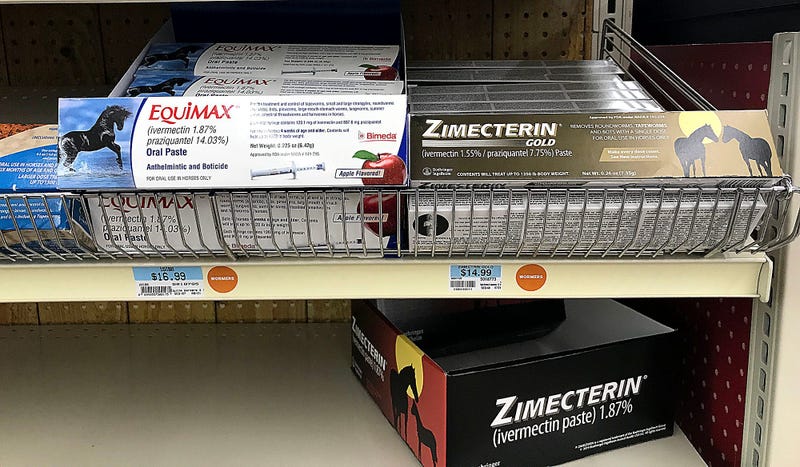Despite being promoted by Republican politicians such as Marjorie Taylor Greene and podcaster Joe Rogan, a recent study has found that ivermectin doesn’t actually prevent COVID-19 hospitalizations.
“Treatment with ivermectin did not result in a lower incidence of medical admission to a hospital due to progression of [COVID-19],” said the study, published Wednesday in the New England Journal of Medicine.
Ivermectin is an anti-parasitic drug typically used to treat certain worm infections in humans, according to the Mayo Clinic. During the COVID-19 pandemic, ivermectin became a popularly discussed alternative to vaccines though there was little evidence that it worked to prevent or mitigate SARS CoV-2 infection.
A study published in the JAMA journal this February found that “in late 2020, the number of new prescriptions for hydroxychloroquine and ivermectin was higher in counties with higher Republican vote share.”
By August 2021, the Centers for Disease Control and Prevention said there had been a “rapid increase” in ivermectin prescriptions and reports of severe illness associated with taking it. The following month, Rogan – who hosts “The Joe Rogan Experience” podcast, which has around 11 million listeners per episode – announced via Instagram that he contracted COVID-19. He said that he took ivermectin along with other treatments, including monoclonal antibodies.
Late last year a group of doctors penned an open letter to Spotify, the streaming service that carries Rogan’s podcast, claiming that he spread misinformation about vaccines. After, artists such as Neil Young and Joni Mitchell pulled their music from the Spotify app.
As of December 2021, the U.S. Food and Drug Administration warned that people should not use ivermectin – which is also sold as a paste with doses intended for large livestock such as horses and cows – to treat COVID-19.
For the study released this week, researchers “conducted a double-blind, randomized, placebo-controlled, adaptive platform trial involving symptomatic SARS-CoV-2–positive adults recruited from 12 public health clinics in Brazil.”
A total of 3,515 patients included in the study had COVID-19 symptoms for up to seven days and at least one risk factor for disease progression. They were randomly assigned to receive ivermectin once daily for three days or placebo, with 679 patients in each group.
Overall 100 patients, or 14.7%, in the ivermectin group had a “primary-outcome event,” compared to 111, or 16.3%, in the placebo group, said the study. The National Library of Medicine describes a primary outcome event as “the variable that is the most relevant to answer the research question.”
According to the study, 81% of the primary outcome events were hospital admissions.



